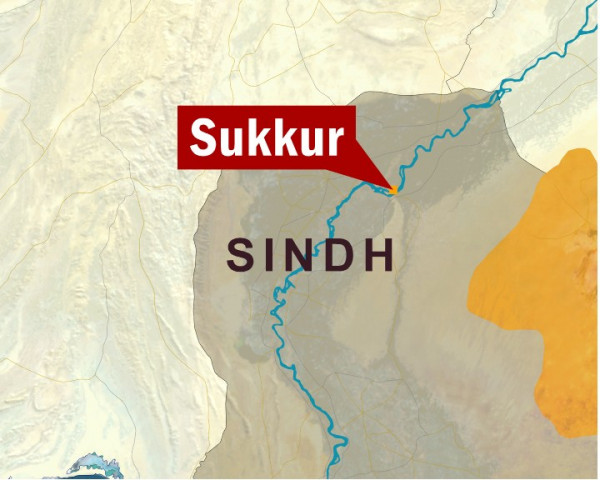11 out of 16 filter plants broken down and awaiting repairs in Sukkur
Residents relying on the filters are forced to consume dirty water as a result.

According to officials, the plants stopped working due to a lack of maintenance. The employees are reluctant to work for meagre salaries and have therefore stopped looking after the machines.
The workers were further disheartened when their salaries were not raised to the minimum wage level of Rs7,000 announced by Prime Minister Yousaf Gilani. They said that they cannot survive on Rs5,000 per month.
Furthermore, the taps of the unused machines have been stolen and some plants have been turned into garbage dumps, said another official.
The city administration claims that they do not have enough funds to fix the plants while doctors continue to advise the residents of Sukkur to boil water before drinking it.
Residents and their representatives have requested the city administration to supply clean water to the city and ensure that the filter plants start working as soon as possible.
When contacted, DCO Sukkur Inamullah Dharejo said that he has taken the responsibility of the two filter plants located at Muhammad Bin Qasim Park and Ghaznawi Park. The Taluka Municipal Administration has been ordered to start the plants as soon as possible after changing the motors and cartridges, said Dharejo, adding that he has taken responsibility for these two plants because they cater to the most populated areas of Sukkur.
The filter plants worth Rs80 million were set up at the union council level in 2007 under the Clean Drinking Water for All project initiated by the provincial government. Based on the scheme, around 47 plants were to be set up in each union council in Sukkur district. A total of 2,300 plants were to be established in all union councils of Sindh.
However, not all plants were set up as some of the areas assigned did not have electricity connections or the proper infrastructure. Some of the allocated locations were garbage dumps and needed clearing before construction could begin.
The 16 plants set up in Sukkur district were located in Jinnat building, Waspur Muhalla, New Pind, Ghaznawi Park, Muhammad Bin Qasim Park, EDO Health Office, Board Office, DCO Chowk, Military Road, Old Sukkur, Nawah Goth and other areas.
The provincial government approved the project and appointed an NGO to set up these plants. Once the constructions were complete, the plants were supposed to be handed over to the district administration.
The water supply to Sukkur city is carried out by Waterworks, which works under the Taluka Municipal Administration. It supplies 16 million gallons of water every year to the two tehsils that make up Sukkur city and only 30 per cent of it is filtered.
Published in The Express Tribune, October 8th, 2010.


















COMMENTS
Comments are moderated and generally will be posted if they are on-topic and not abusive.
For more information, please see our Comments FAQ